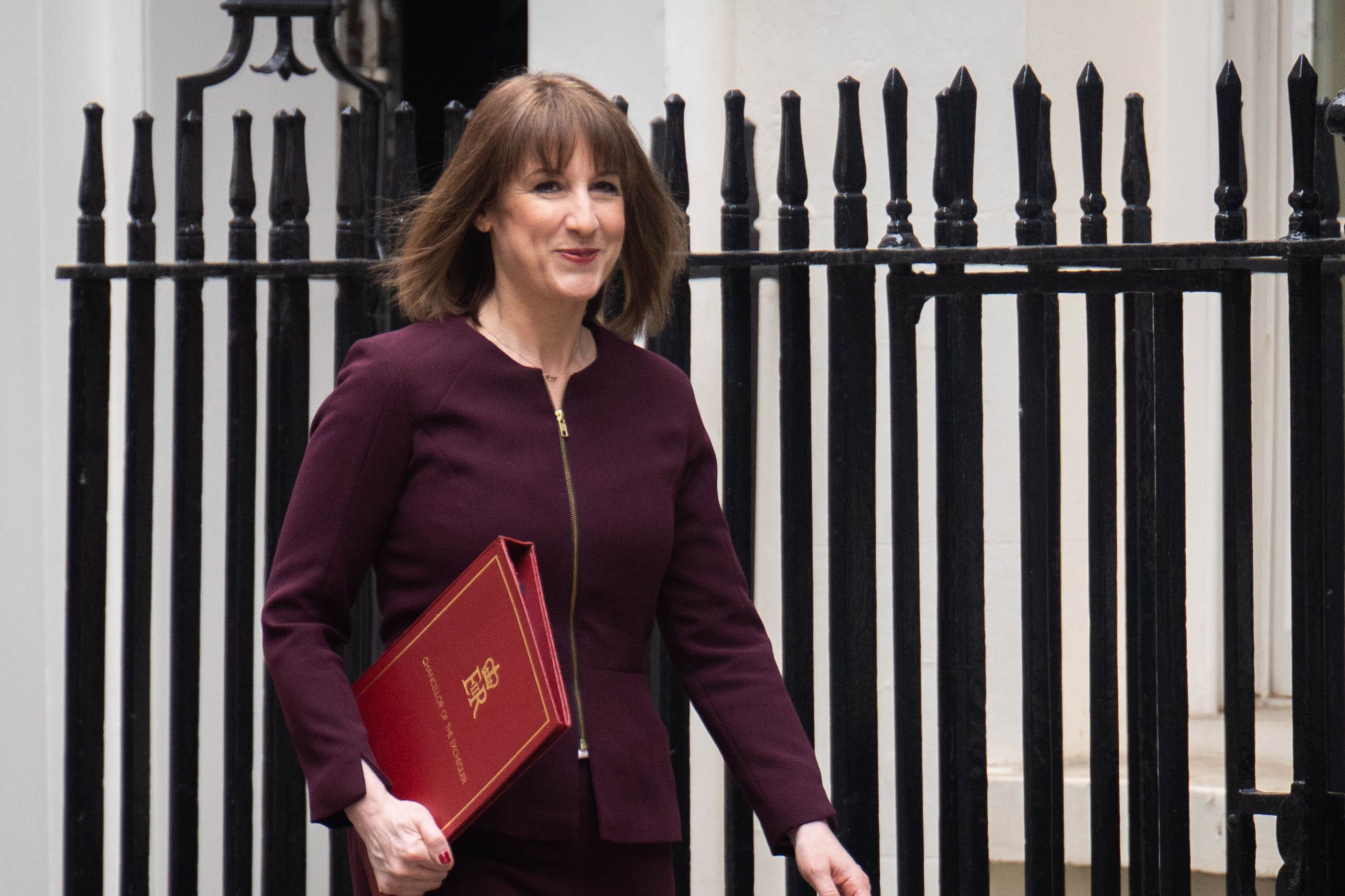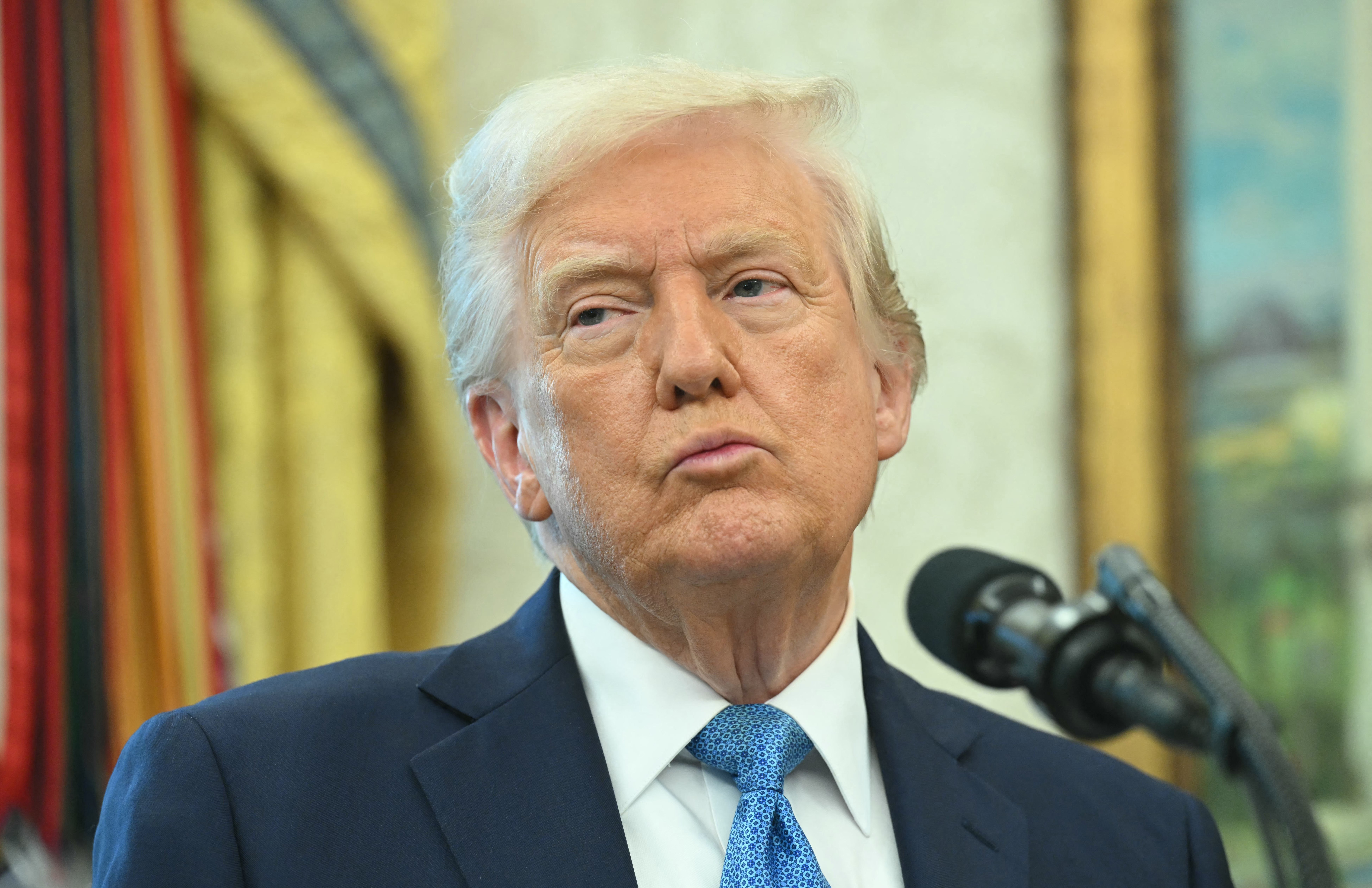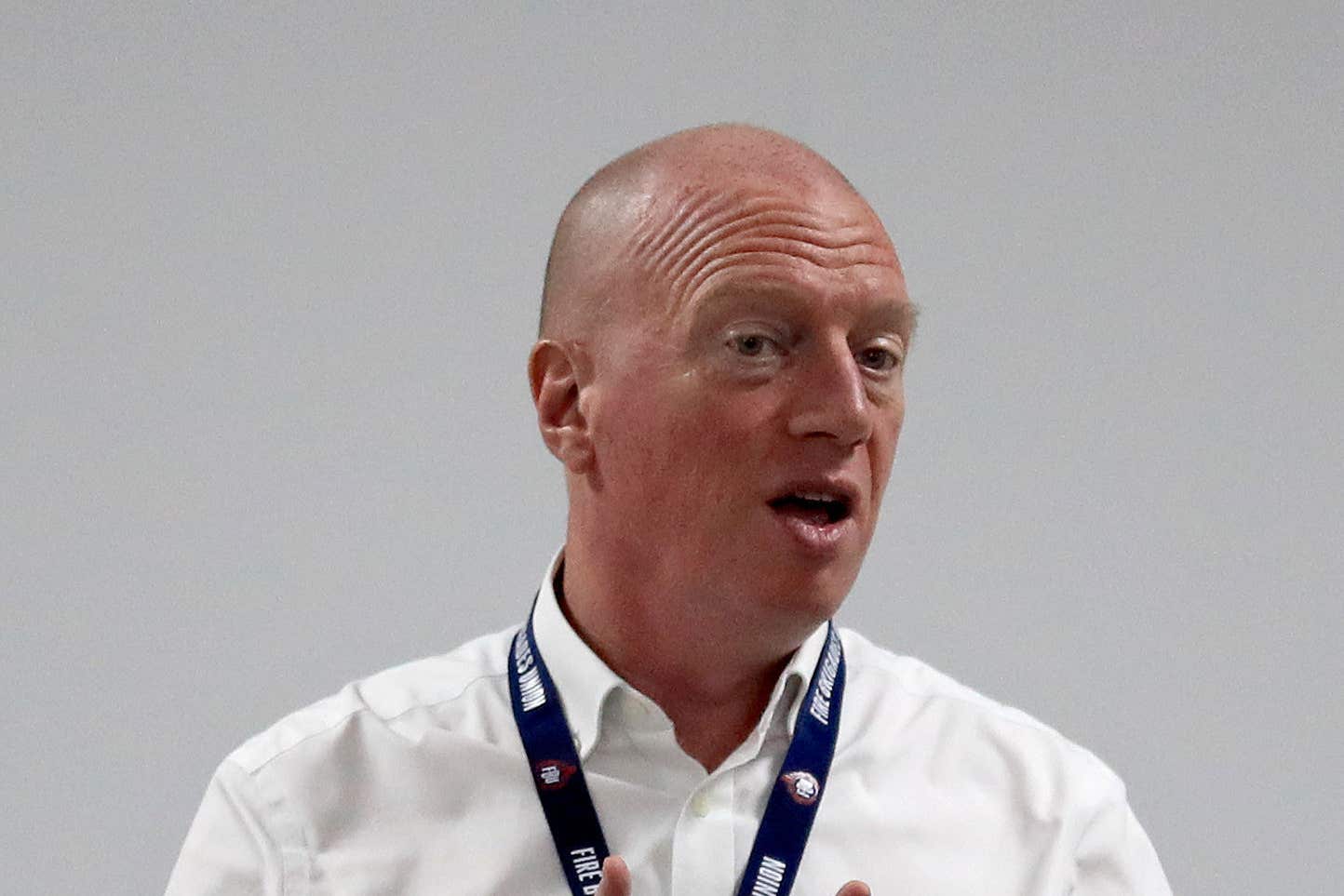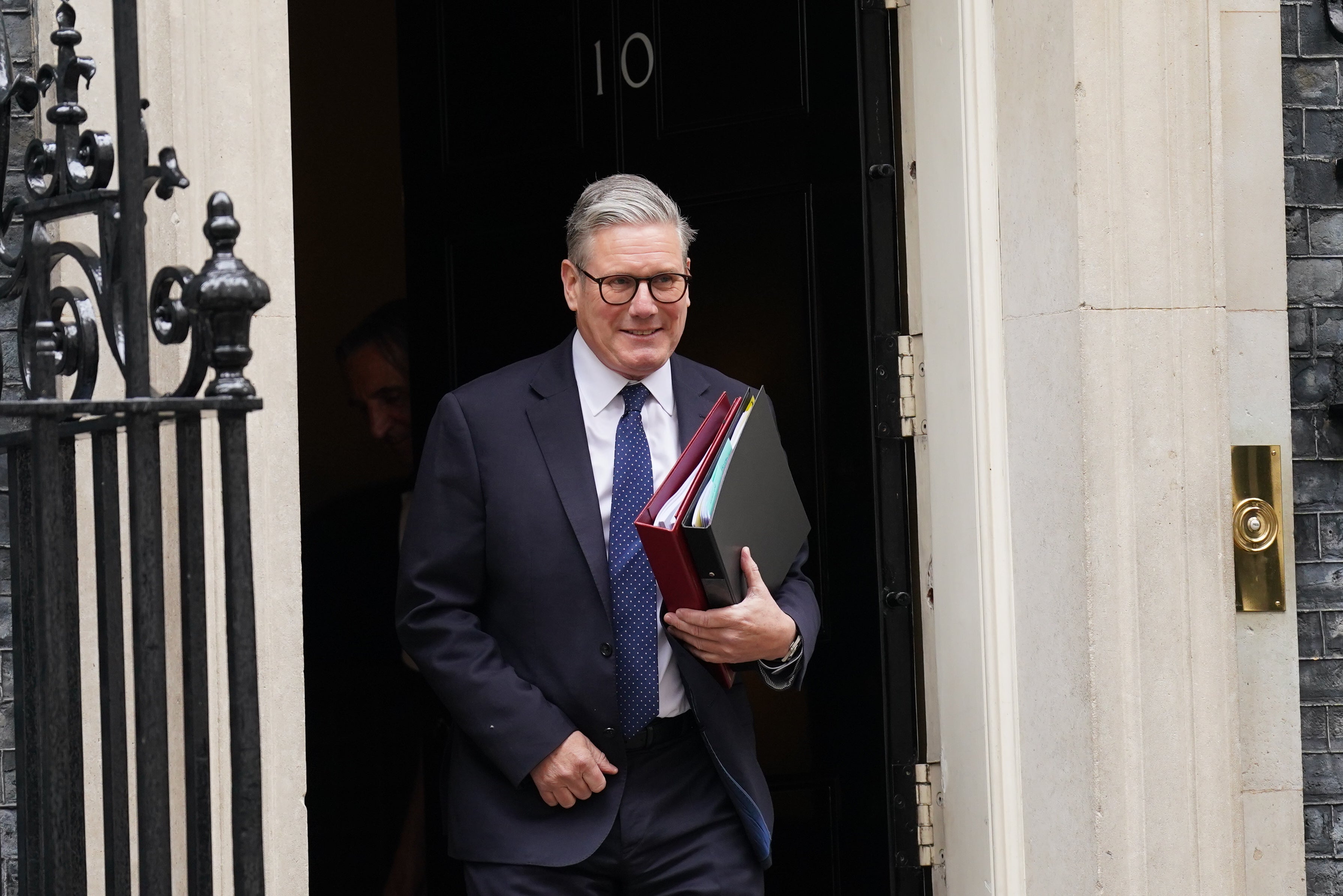When Rachel Reeves turns up at the International Monetary Fund (IMF) today she already knows that she needs a near miracle to turn things around.
The dire predictions by the IMF itself ahead of the summit of finance ministers in Washington DC saw the UK set to have the highest inflation of advanced economies at 3.1 per cent while growth was slashed by 0.5 per cent to 1.1 per cent.
For a woman whose mantra during and after the election was “growth! growth! growth!” the news could not be worse for the chancellor.
And while the IMF’s revisions are a result of Donald Trump’s planned tariffs, the reality is that Ms Reeves was already struggling and under siege from competing demands from all sides.
The chancellor now needs to land a number of apparently contradictory achievements to turn the UK economy around and save her political career and reputation.

Trump vs the EU
Top of the list, partly because the clock is ticking, are the two big pushes to sort out trading relationships with the UK’s two biggest economic partners - the US and the EU.
The Brexit reset deal is set to be unveiled on 19 May at a summit in the UK hosted by Sir Keir Starmer. Meanwhile, in early July, the 90 day pause on tariffs announced by Donald Trump is set to run out with hopes that this will be the unofficial deadline to agree a UK-US trade deal.
Ms Reeves is expected to meet President Trump’s economic secretary Scott Bessent today in a hope that she can hasten the deal over the line.
But achieving both a proper Brexit reset and a US trade deal looks extremely difficult. Trump considers regulations banning items such as chlorinated chicken and hormone injected beef as a trade barrier. But giving way on that and other regulations would put the UK at odds with the EU.
There are even more complex problems in dealing with the tech industry and things such as the US light touch on the sharing of personal data.
Meanwhile, leaks out of the Brexit reset talks suggest the UK is planning to align closely with EU regulations to remove checks at the border but this could provoke Trump into doubling the UK tariff from the 10 per cent planned to the 20 per cent wanted by the EU.

Businesses vs the trade unions
The election this week of veteran trade union leader Matt Wrack as general secretary of the second biggest teaching union, the NASUWT, is a sign of problems to come.
Wrack was a fireman and has never been a teacher but as the former general secretary of the Fire Brigades Union (FBU) and president of the TUC, he was a thorn in Sir Keir’s side on issues including public sector pay and workers’ rights.
NASUWT has essentially hired a professional trade union activist to prepare for a fight on both those issues. They are not alone in making those preparations.
The workers’ rights packages being brought in by Labour and last year’s pay rises have not satisfied their biggest financial and political backers - the trade union movement.
Industrial action is already on the cards in education, health, transport and other areas.
But conversely, Ms Reeves and Sir Keir also have to appease business, who will be the drivers of economic growth.
Tax hikes such as the national insurance employers’ contribution rise have already infuriated businesses, led to job losses and recruitment freezes.
They feel that they have been betrayed over workers’ rights where many business leaders claim that they were assured by Ms Reeves would not happen or would be much more limited.
Labour will not get economic growth if thousands of workers are on strike, but they also will not get it if businesses close, stop expanding or ship out of the country.

Election promises vs balancing the books
Paul Johnson, the outgoing director of the Institute for Fiscal Studies (IFS), is not a lone voice among economists arguing that Rachel Reeves’ election promises on not raising income tax, employee national insurance contributions or VAT is unsustainable.
As growth has failed to materialise and the economic headwinds have blown against the UK economy, Ms Reeves has struggled to balance the books.
Just recently, respected former chancellor Ken Clarke, who turned the economy around after Black Monday in 1992, said that Ms Reeves should increase VAT.
But to do that or to raise income tax or cancel Jeremy Hunt’s National Insurance cut, Ms Reeves would be breaking a pledge made at the election.
The other alternative is to rewrite the stringent rules she has enforced on herself on borrowing. A number of experts have suggested that following the German path of loosening borrowing could help her out. But again Ms Reeves seems reluctant to do that.
This means she is betting the house on supply side reforms by loosening planning regulations and hoping a building bonanza saves her and the economy.
Additionally, she will hope that the savings she wants to achieve via welfare cuts materialise - although Trump’s tariffs will almost certainly mean she needs to come back for more.

Labour MPs vs welfare cuts
Apart from a few rebels, Labour MPs have mostly swallowed some difficult decisions on welfare reforms but that does not mean they will continue to do so forever.
Already means testing has removed winter fuel payments from 10 million pensioners, Labour has abandoned scrapping the two-child benefit cap and now they are taking £5bn off welfare mainly by slashing disability support.
There is plenty of chuntering in private by Labour MPs about the harshness of an approach which might be more expected from the Tories. In fact, the Tories resisted similar plans by Liz Truss.
But as an election gets closer and the number of constituency cases of disabled or elderly or long term sick constituents builds up then Labour MPs are going to be emboldened to speak out.
Added to that is the fact that figures in cabinet, including deputy prime minister Angela Rayner, are said to be unhappy.
The political problem for Reeves will be that if she cannot show economic growth for her hard choices then her whole project’s credibility will unravel.
At that point, Sir Keir will have to look at her position and a change of direction, not least to save his own skin.
JD Vance’s bluster shows why Zelensky swerved an American ambush in London
Reeves IMF speech live: Chancellor insists Trump is ‘keen to do a deal with the UK
Bessent says China has ‘opportunity for a big deal’ with US as trade war cools
Assisted dying coercion risk greater for disabled people – Tanni Grey-Thompson
Jenrick signals Tory-Reform pact with promise to ‘unite the right’
Can Kemi Badenoch’s new policy idea save her from local election disaster?







